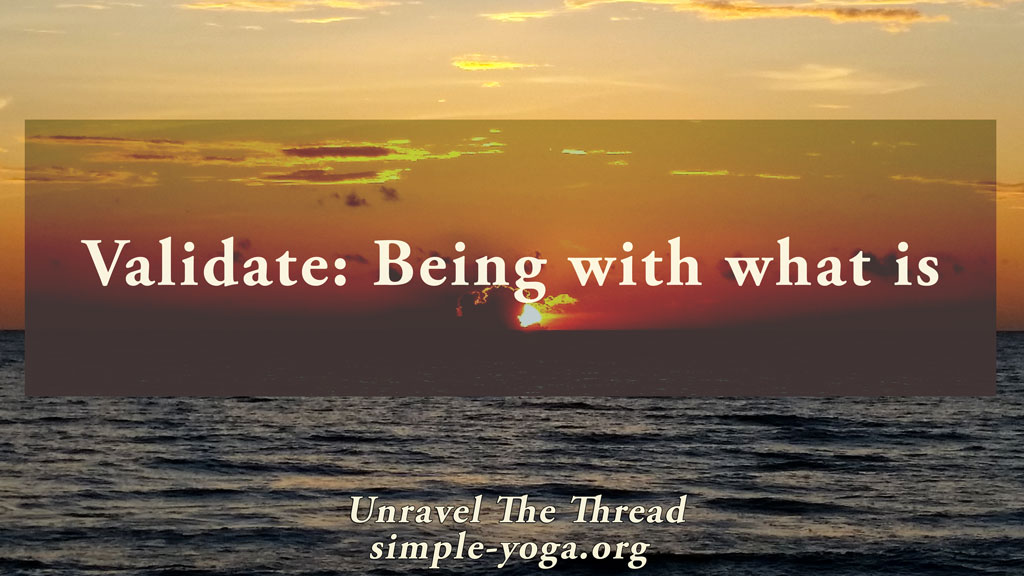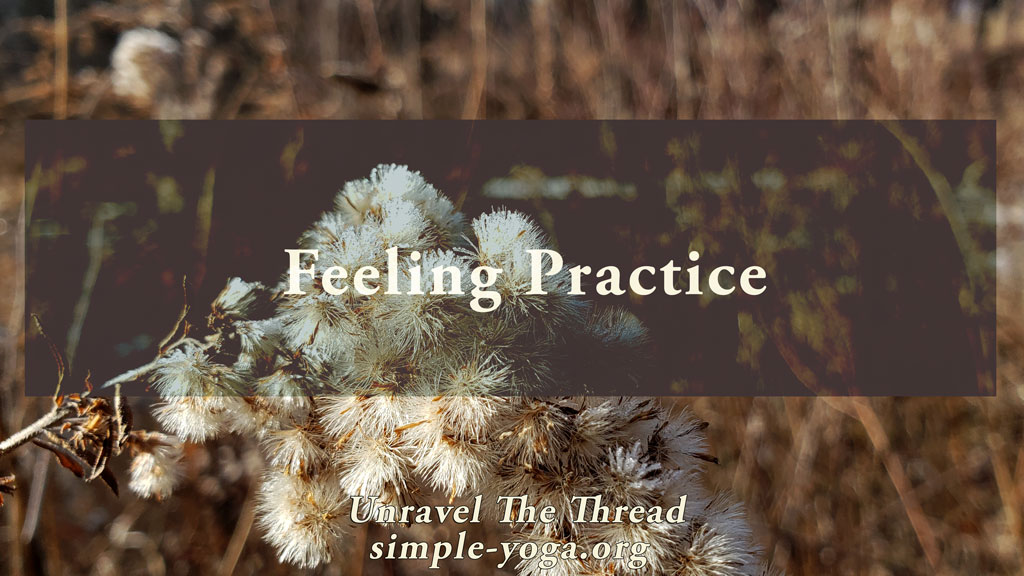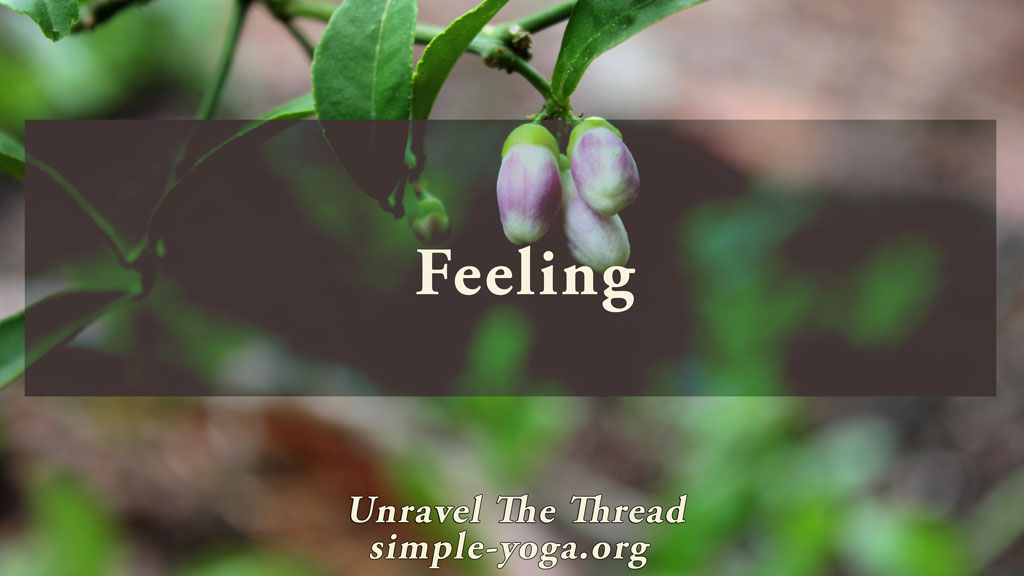
Validate – being with what is
July 24, 2023
Feeling Practice
August 7, 2023
Validate – being with what is
July 24, 2023
Feeling Practice
August 7, 2023Weaving the thread of the Yoga Sutra: Feeling
Being alive, we are endowed with the gift of feeling all kinds of sensations. Similarly, we are capable of feeling a wide range of emotions and of thinking thoughts of all kinds. Naturally, we prefer pleasant over unpleasant sensations, emotions, and thoughts. These preferences, when they become encoded in our sense of identity, end up causing suffering in the form of cravings for what we prefer (raga 2.7), anxiety at the thoughts of losing what we like, and pain when it is gone. It operates in the same way with the things or experiences that we dislike (dvesha 2.8), we invest energy in pushing them away and we may also feel some anxiety when we suspect that something unpleasant is coming our way.
There are a variety of possible approaches for dealing with the feelings, emotions, and sensations we experience. One perspective is to try to ignore what is happening. Perhaps, it can be a way to strengthen our will. In the long term it does not seem to work, especially because there will always be many stimuli that we may find unpleasant or annoying. Another option is distracting ourselves by engaging in some other task, or thinking about something else. This is similar to the previous option; besides it also develops a habit of trying to ignore the present moment, which is the exact opposite of being aware. Moreover, strengthening our capacity to ignore may weaken our ability to remain present with what is actually happening. A third option is resisting whatever we are feeling. When you try resisting you might find that the more you resist the more the annoyance will persist. Quite likely the resistance may create so much internal struggle that it may end up consuming a lot of our attentional energy.
A fourth perspective is trying to manipulate the outside world to avoid experiencing anything we dislike. This is exhausting because we end up trying to anticipate all possible variations to each specific situation. Many of us may become experts at this, perhaps even being able to build a career based on our ability to predict what will happen. However, in addition to generating anxiety and insecurity, sooner or later we recognize that it is truly impossible to orchestrate the multitude of factors that cause things to be as they are in the moment that we are in.
Although this recognition can offer us a sense of defeat and impotence; on the other hand, it may provide a sense of relief when we acknowledge that most of the things outside of us are beyond our control. It may also help us notice that most of us are not very skilled at controlling fully our body, our breath, our thoughts, or our emotions. If controlling ourselves fully is so difficult, is it realistic to expect that we can control other people’s thoughts, intentions, and actions? Furthermore, if we examine our past predictions, we will realize that we are not very good at predicting the future because life is always changing in a myriad ways without repeating itself.
There is another, more empowering option. It is based on understanding that our capacity to feel all kinds of sensations, emotions and thoughts is a wondrous gift. Why? Imagine that you could only feel one thing, for instance that you could only taste your favorite flavor, or that you could only feel one emotion. Life would soon become quite boring and even what we initially thought was enjoyable would soon stop being pleasant. One important, and perhaps essential, aspect of life is that it is truly diverse. What would happen if we understood that our body, senses, mind, and emotions are all gifts enabling us to experience life in its complete richness? Would we be more likely to be open to feeling everything? Could an attitude of curiosity contribute to this openness?
Some further questions to contemplate. Whenever we feel anything, especially something that is unpleasant or that we dislike we can ask ourselves:
Can I actually feel the sensations/emotions I am experiencing?
Where are they manifesting?
What are their characteristics?
Are the sensations/emotions/thoughts constant, or are they changing from one moment to the next?
If I stay with these sensations, do they change in intensity?
Am I taking these emotions personally?
If so, how does this experience define who I am?
And if the thought, emotion, or sensation is temporary, does it make sense to define myself by something that is no longer here?
If the particulars of the experience, sensations, thoughts, and emotions keep changing, is it possible that what remains is just your awareness?
Is your knowing, awareness, or consciousness the continuous thread of your whole life?
Is abiding in awareness what Patanjali invites us to explore in sutra 1.3?
If you prefer, you may listen to the podcast:
This is an excerpt from the book Unravel the thread: Applying the ancient wisdom of yoga to live a happy life
If you find Simple-Yoga.org and Unravel the thread useful, consider supporting my labor with a donation, you may also donate using PayPal or Venmo. Thank you!

